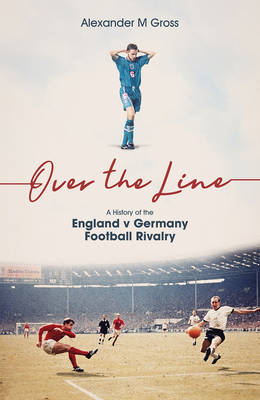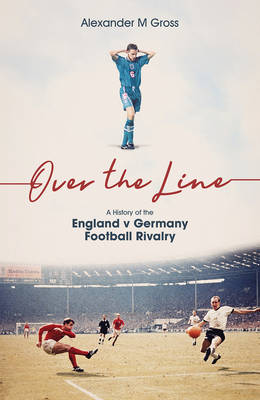
- Afhalen na 1 uur in een winkel met voorraad
- Gratis thuislevering in België vanaf € 30
- Ruim aanbod met 7 miljoen producten
- Afhalen na 1 uur in een winkel met voorraad
- Gratis thuislevering in België vanaf € 30
- Ruim aanbod met 7 miljoen producten
Zoeken
€ 38,95
+ 77 punten
Omschrijving
The history of the fierce football rivalry between England and Germany is encapsulated in a single moment - Geoff Hurst's extra-time shot off the crossbar in the 1966 FIFA World Cup Final and the decision of an infamous Russian linesman to award a goal. It is a rivalry that now spans more than 90 years since the first official match between the two nations. For the English, a series of high-profile defeats at major tournaments saw Germany become the Angstgegner on the field, as well as an enduring obsession for the national press. For Germans, Wembley still represents the home of football, where the memories of 1966 have been supplanted by numerous successes and the appropriation of the English anthem 'football's coming home'. The rivalry has long crossed the lines of the football field, with the two nations at various moments forced to admire and learn from each other, and with football encounters between England and Germany repeatedly marking important developments in a unique and ever-changing political and cultural relationship.
Specificaties
Betrokkenen
- Auteur(s):
- Uitgeverij:
Inhoud
- Aantal bladzijden:
- 336
- Taal:
- Engels
Eigenschappen
- Productcode (EAN):
- 9781801501682
- Verschijningsdatum:
- 15/12/2022
- Uitvoering:
- Hardcover
- Formaat:
- Genaaid
- Afmetingen:
- 138 mm x 216 mm
- Gewicht:
- 517 g

Alleen bij Standaard Boekhandel
+ 77 punten op je klantenkaart van Standaard Boekhandel
Beoordelingen
We publiceren alleen reviews die voldoen aan de voorwaarden voor reviews. Bekijk onze voorwaarden voor reviews.











